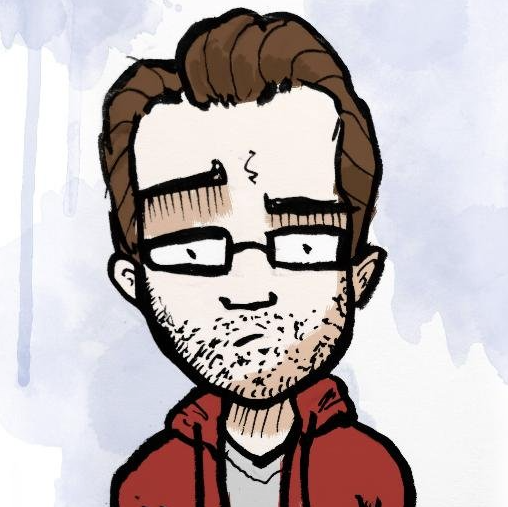Digital Minimalism
On the day I wrote down my thoughts about maybe ditching social media, I decided to buy a book I'd had on my wishlist for a long time, Digital Minimalism by Cal Newport.
The book arrived the following day and within 24 hours of its arrival, I was half way through the book.
The first half of the book focusses on the whys, citing many examples of how big tech companies have engineered their products to get us to keep coming back. I've become all too aware of my own knee-jerk reaction to reach for my phone in almost any scenario so this book highlighted many things I can empathise with and led me to some serious self-reflection about my habits with tech, particularly my phone.
The book proposes an idea of doing a 30-day digital detox, where you completely get rid of what Newport refers to as optional technologies, meaning anything you don't really need to function in your day-to-day life.
I've been reflecting on the apps I use, especially those I reach for as a compulsion to fill some sort of time void, and weighed up the pros and cons, as well as the reality of life without them.
Reading some of the example cases in the book, it's a bit of a spectrum with how far people go with their detox. Some go full-on by ditching their smartphone altogether and learning to live without it, others keep their smartphone but reduce their access to certain platforms and/or form strict rules to follow around usage. I sit in the latter category as I've already determined that some apps can't be dropped completely, despite them being technically optional. For me, some apps fall into "problem" apps and the rest are generally ok.
The "problem" apps
I define these apps as the apps I find myself compulsively loading up and getting lost in before my brain has even caught up enough to ask "why am I even doing this?"
- Instagram - Though it's a great place to see art, I do find myself getting sucked in to endless scrolling as well as the occasional Reel and it's a massive time drain.
- Facebook - I've not been an active poster on Facebook for years now but even being a sort of lurker, only occasionally interacting with a post, is just another way time gets frittered away.
- Threads - I've been good at walking away from Threads after a little scroll through but I'm adding this to the list because in the absence of the rest, I know I'd easily start using this as a crutch.
- YouTube - This one is a bit of an odd one. I don't get sucked into watching Shorts all the time but I do like to watch videos by artists talking about process which I try to learn from. Not inherently bad but there are definitely times when I watch a video and think "I could just be spending this time making art, instead of watching someone else make art".
At the time of this writing, I've deleted Facebook and Threads from my phone and Instagram is on the chopping block, I'm just making sure I can still occasionally post to my art Instagram account on my laptop. It's still the primary channel I promote a Drink n Draw event I host but aside from that, I can live with reduced access.
As I said, YouTube is an odd one. I don't feel a compulsive draw to it, I can watch a video or two which is useful to me and I can easily shut it down and get on with my day. But as I mentioned, it can be a general distraction, diverting my attention away from something else I could be doing. So for now, YouTube has been removed from my homescreen but is still installed on my phone. I can still access it, but it's more than a tap away which gives me enough time to question whether it's a good idea at any given moment.
And what about rest?
Many apps fall out of the optional description. For me, they sit more in an intentional category, in that I choose to open the apps for a reason and very easily walk away from them when I'm done.
I use WhatsApp and Messenger to organise stuff around the kids with my wife, Mum and Stepdad as well as keeping in touch with my brothers (one lives in Japan). Also, these apps also don't draw me in like they might do with other people. I don't get endless messages all day long demanding my attention. At best, there'll be a flurry of activity for a short time (which I often don't have an issue ignoring until I'm ready), then it goes quiet and in those quiet periods, I don't go seeking out those apps.
I'm definitely taking on board the points around the dangers of text messaging becoming a replacement for meaningful conversation with people. Text messaging feels like a good way to maintain a relationship with friends and family but actually talking to people, face-to-face or on a call, is going to garner far more positive results. So while I'm keeping text messaging, I need to make a conscious effort to make more time to actually speak to people.
Spotify and Overcast are also sticking around. I don't just go there to kill time, nor do I sit and stare at the screen while I'm using those apps. Typically, I'll set a song or podcast running then get on with something else, like cleaning, driving or gardening. I rarely (if ever), have music or podcasts playing while I continue to use my phone.
Am I doing the 30-day detox?
The overall purpose of the detox is to reset your baseline. Get rid of the compulsive need to reach for your phone all the time and learn how to deal with those moments of silence or replace them with an activity you value. Once the 30 days are up, you can then slowly introduce any digital tools which you feel will still offer value, based on your new perspective.
For me, I have no plan to re-introduce the apps I've deleted from my phone. I want to learn to live without them (if I can) and do that indefinitely. So, I guess I'm doing a form of the detox, just without a timeline.
What does success look like to me?
This feels like a good question to end on because it gives me a target and also provides something to compare to in a future post, maybe around Christmas time.
Right now, I'll consider this a success if I can break the pattern of compulsive behaviour in those small day-to-day pockets of time, like if I'm waiting for the kettle to boil or waiting in line at a shop as well as just making it through a meal with family or friends without feeling the need to glance at my phone. Reducing my overall average daily screen-time to around an hour is something I've noted before but not really put any measure in place to help.
I'm still reading the book at the time of writing this, so rather than editing this post over and over, I'll write any further thoughts as follow-up posts so stay tuned.

